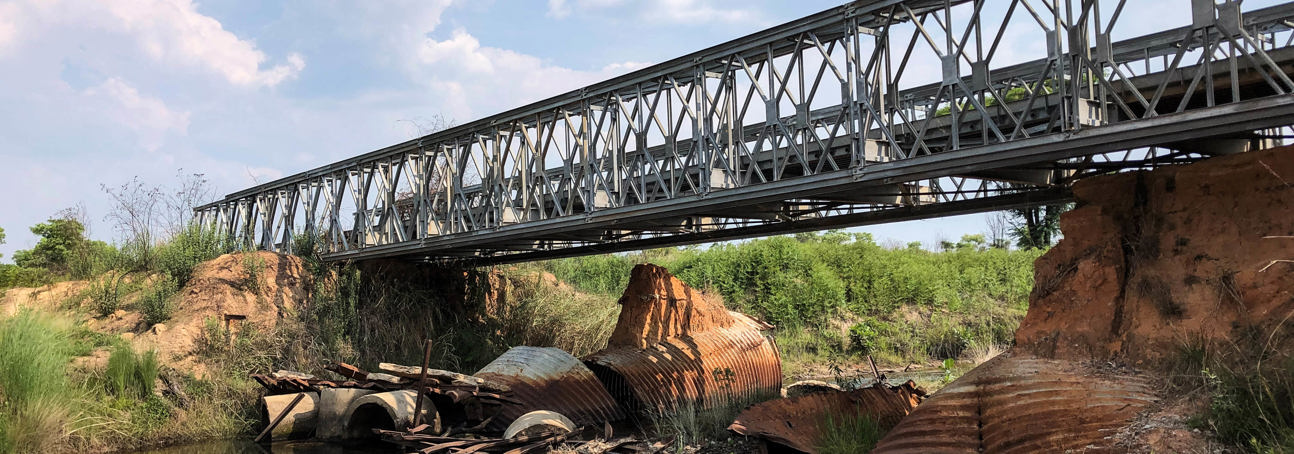The Benguela Railway Company was founded in 1903 to begin construction of a line running from Lobito on Angola's Atlantic coast to the eastern border with what is now the Democratic Republic of the Congo. It took 25 years to construct and in its heyday the Benguela Railway was the shortest way to transport minerals from the Congo to Europe and the line was very successful and profitable.
In 1973, before Angola gained its independence from Portugal, the rail company had 14,000 employees, carried 3.2 million tons of freight and earned $30 million in freight revenues. It offered first-class coaches with leather and mahogany. By the mid-1980s the line was often mined, its workshops in Huambo had been bombed to destruction and few of its locomotives still ran.
Minefields cleared and still to be cleared along the Lobito Corridor
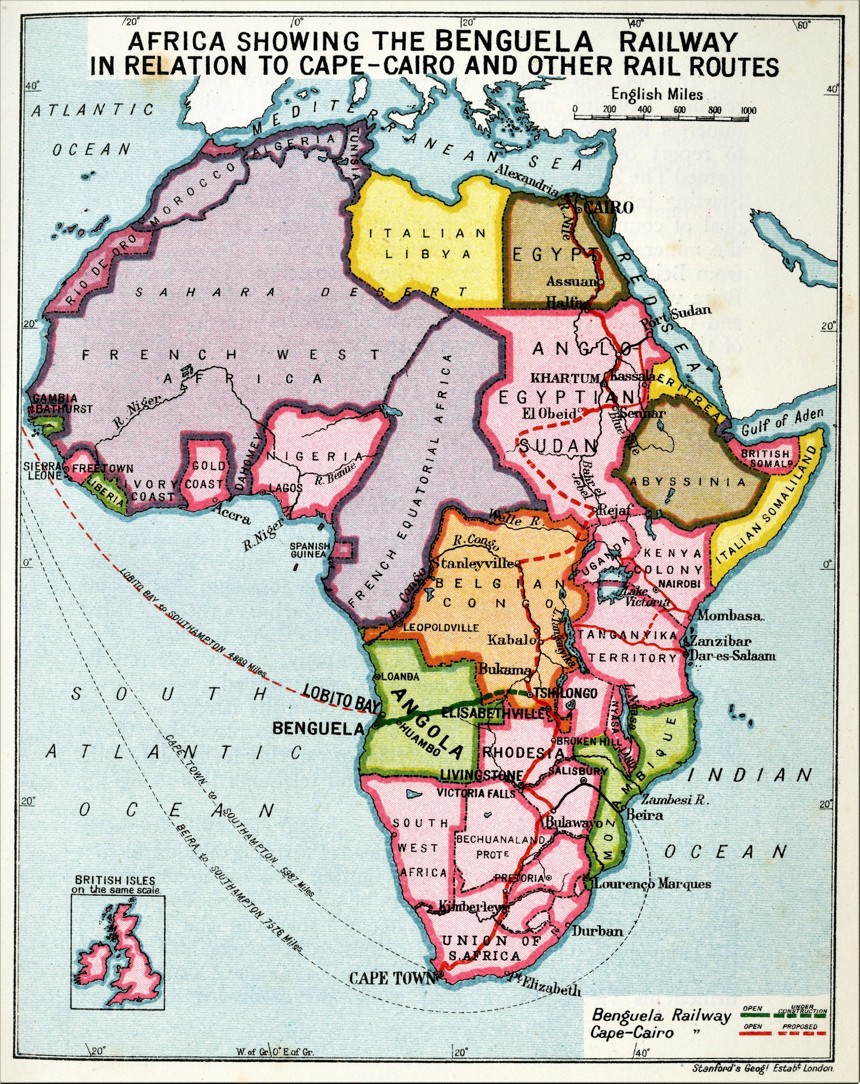
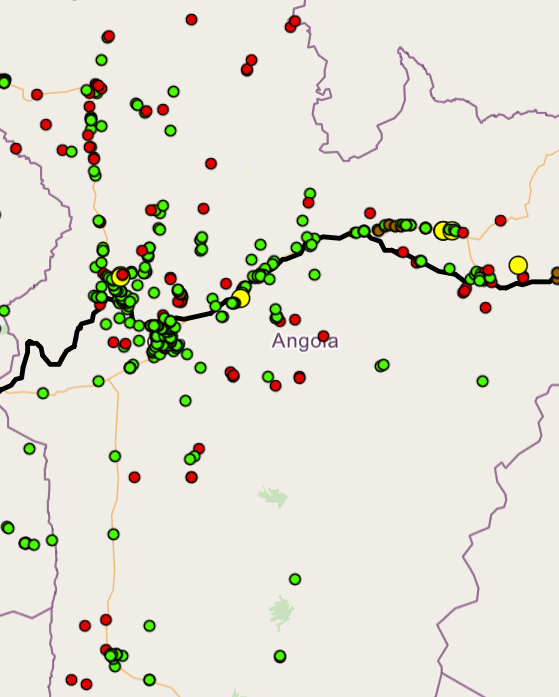
Despite the damage, the railway was one of the reasons that the district of Cuemba in Bié Province became a focal point of fighting, mine laying and civilian suffering. At one stage opposition forces controlled a 200km stretch of the line allowing it to ferry fighters and materials and giving them access to bordering Moxico Province, a UNITA stronghold in the latter stages of the war.
Many communities in Cuemba district became isolated during the 1980s and 1990s because they were so heavily encircled by landmines, often laid by troops from one side or the other who found themselves under siege during different stages of the war.
Similarly, local people suffered huge hardships and displacements when territory in the area changed hands in the final years of the war, with aid agencies describing tens of thousands of displaced people forced onto mined roads in 2001.
When the displaced reached the safety of camps hunger was rife - a survey of children found acute malnutrition reached 46 per cent in Cuemba camp in April 2001 - the internationally recognised threshold for an emergency is 10 per cent.
By the end of the war in 2002, the Cuemba district was one of the most mined in the country with some reports suggesting one landmine accident for every 10,000 people. The landmines hampered the ability of displaced people to return home safely to farm their land and feed themselves.
HALO has been demining in Bié Province since the 1990s, beginning in the most populous and urban areas, such as the provincial capital Kuito - one of the cities visited by Diana, Princess of Wales when she visited Angolan minefields with HALO and the Red Cross in 1997. Funding shortages forced HALO to close its Kuito compound in the mid-2010s while many communities in the province still desperately needed clearance.

Deminers breakfasting on the Benguela railway line
Increased financial support from the US State Department's Office of Weapons Removal and Abatement has allowed HALO to return to Bié since 2019 and in autumn 2022 started clearance operations in villages in Cuemba district, including in Munhango near the border with Moxico province. The minefield served as a former military position near the Benguela railway and was mined in 1983 by the government’s FAPLA forces to prevent UNITA from occupying the town.
We also started work in Comboto and Lusseley villages, in Cuemba municipality. The area was mined by UNITA forces as they withdrew from the village in the mid-1980s. Comboto minefield was initially surveyed by a HALO team supported by the US in August 2022, after the local community reported there had been a mine accident in 2008 that resulted in the death of a mother and daughter. Once cleared, local residents will use the land to grow different grains and medicinal plants as well as collect firewood.
The US contract is also funding HALO's community outreach teams to visit villages in the area to provide risk education classes to local people. Even as HALO removes the mines, there remains a constant threat of injury from long-forgotten explosive items in places that were heavily fought over. The funding also provides support for explosive ordnance disposal call out teams who respond to the local community when old shells, grenades and bombs are discovered. Often HALO is alerted to the presence of unexploded devices after it holds a risk education session and people come forward.
Risk education and clearance in Chindumba village
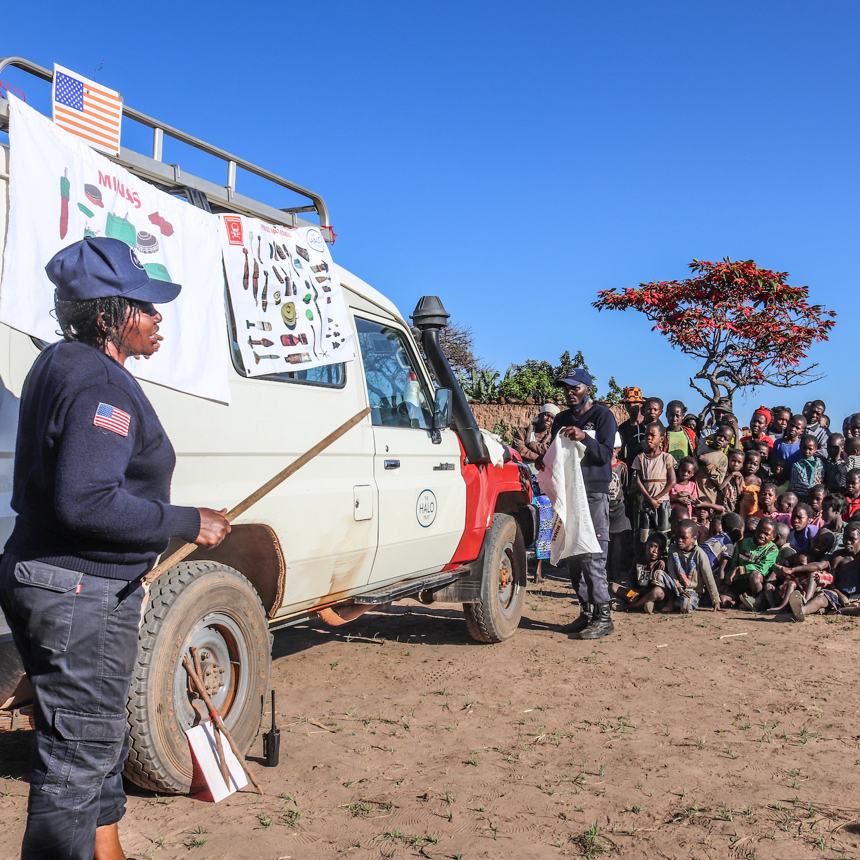
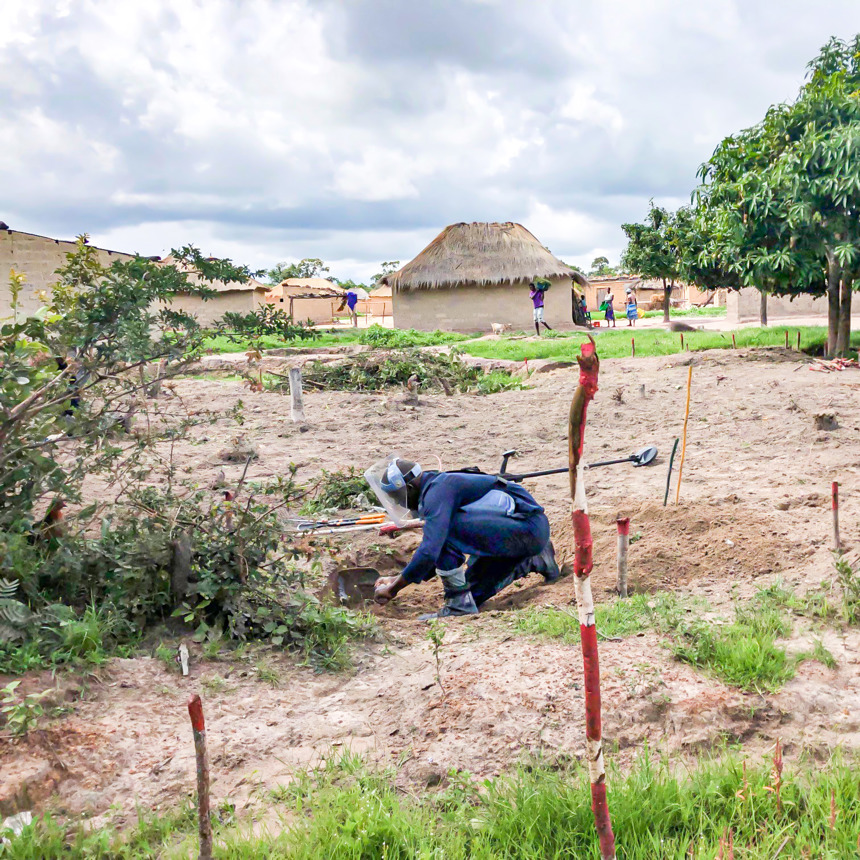
Our work in Angola is made possible thanks to the generous support of the United States Government


